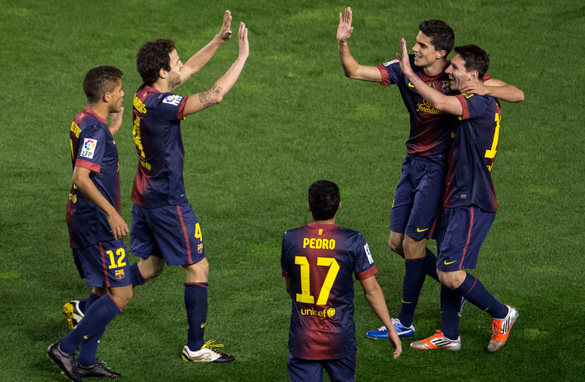Rumors and speculation are running wild, as the Chinese Communist Party (CCP)
prepares for its 18th Party Congress. So far, though, the most tangible thing
about the Congress is the massive deployment of extended security measures in
China, resulting in the cancelation of academic conferences, art exhibitions,
performances and even private meetings.
In a way, the CCP is asking the
entire Chinese nation to hold its breath until the Congress ends.
All this effort is expended over
the transfer of power to the "next generation" of Chinese leaders. Indeed, these
extra security measures indicate that the leaders of the CCP understand well
their weakness: that the fragility of an authoritarian system lies in its
transfer of pow
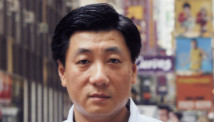
Bao Pu
That is, despite its domination
over the lives of the Chinese people, even the Communist party is not exempt
from the general political axiom that a governing régime relies on popular
acceptance of its authority.
The problem is that is no one,
not even the Party's own members, voted for the next generation of CCP leaders.
There are no laws -- or even any clear rules -- that govern the selection of
leaders, leaving the matter of choosing the top leaders of the most populous
nation on earth entirely at the mercy of the Party's forever changing internal logic.
Even after a decade as the top
leader of China, how exactly President Hu Jintao became Jiang Zemin's designated
successor remains a mystery even to expert analysts and historians.
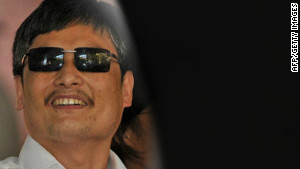 Retracing Chen Guangcheng's
escape
Retracing Chen Guangcheng's
escape
The selection process is and will
always remain at the highest level of state secrets, guarded even from the
majority of Party members. The most important reason is that any detail, if
known, could be used as ammunition for internal party strife and dangerously
expose the leadership's vulnerabilities.
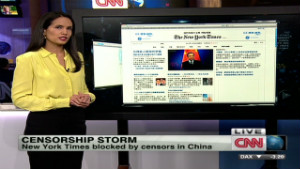 China censors NY Times after
Wen story
China censors NY Times after
Wen story
On April 30, 1976, after Premier
Hua Guofeng had accompanied Chairman Mao Zedong to a meeting with New Zealand
Prime Minister Robert Muldoon, Hua told Mao that he would summon activists from
Sichuan and Guizhou provinces to Beijing for a conference to strengthen the
"Criticize Deng Xiaoping Campaign."
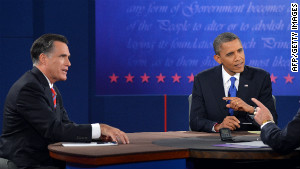 Presidential candidates on
China
Presidential candidates on
China
Mao was already suffering from a
neural disease that made him unable to speak, so he replied by jotting down a
note that read: "With you in charge, I am at ease." Five months later, Mao died,
and Hua became his successor as chairman.
That note became the main
vehicle of state propaganda efforts to lend Hua legitimacy. And in order to keep
its original limited context a secret, Foreign Minister Qiao Guanhua, an
eyewitness to the original exchange, was sacked.
It is unlikely that the public
will ever know how Xi Jinping became the designated successor of Hu Jintao.
Whether or not he was actually handpicked by Jiang Zemin, as rumored, will
remain a secret, and even if Jiang were confirmed to have picked Xi, Jiang does
not have the charismatic stature of Mao to lend instant legitimacy to his chosen
successor, and the lack of public consent would only be highlighted.
In Hua's case, details surfaced
only after he was politically sidelined and excluded from positions of
power.
In addition to the selection of
president and the party's general secretary, the selection of the powerful
Politburo Standing Committee is another top level state secret, because the
details of who nominated whom would allow political analysts to figure out
factional affiliations and map out the complex web of entrenched interest.
Under certain circumstances,
information regarding top leaders is released to the public only with intent.
Deciding which details to release or not to release on the fallen Bo Xilai must
have been a real headache for the Chinese leadership. When the case against his
wife, Gu Kailai, was first announced, there was no mention of Bo himself.
Too many details would only
confirm the longstanding public impression that families of high-level Party
officials use their connections to rapidly accumulate millions and live their
private lives in stark contrast to the Party's claims of altruism. Yet, some
details needed to be released, as authorities built their case against him.
Thus, the decision of what and
when to release information has seemed painfully slow and cautious, creating the
perfect environment for rumors and speculation to feed public curiosity.
In today's global information
environment, details on the Chinese leadership can now reach millions of people
in a matter of minutes via online media and social networks. More than likely,
Chinese leaders do not like the way the public reacts to news that is not
carefully crafted by the state's propaganda machinery.
In March 2012, a young man
driving a Ferrari 458 Spider with two young women aboard died in a fatal
high-speed crash. Information about the incident went viral online before it
could be suppressed. The driver was reportedly found to be Ling Gu, the son of Ling Jihua,
President Hu Jintao's protégé, who was demoted six months after the Ferrari
incident.
Recently, the New York Times Report of Premier Wen Jiabao's alleged family
business ventures spread throughout the Chinese online network shortly after
publication, even after Chinese authorities had blocked access to the
newspaper's English and Chinese websites. The same happened after Bloomberg Reported on the wealth of Xi's extended family.
That is a far cry from September
13, 1971. When Mao's comrade-in-arms Lin Biao died in a mysterious plane crash
in Mongolia, it took months for the news to ripple through widening circles of
the population.
Thus, the Chinese leaders'
response to the new age of information has been to make their political system
ever more opaque and expend enormous resources on media censorship.
Such is the case with Xi,
China's designated leader, of which little is known beyond official accounts.
His personality too must be kept secret through a web of media censorship,
because such information could be used by opponents to figure out his political
tendencies and preempt his political actions.
If we have to make an
intelligent guess about Xi, we might have to look at the CCP's recent "
History of the Chinese Communist Party, Volume 2 (1949-1978),"
which covers the Mao years. This grand project was led by none other than Xi
Jinping, according to official reports, and reportedly under his sole
discretion. The result is another Party effort to cosmetically make over the
disastrous events of the Mao era.
When Xi is in power, he will be
turning Party history to its next page.
"He who controls the past
controls the future."

